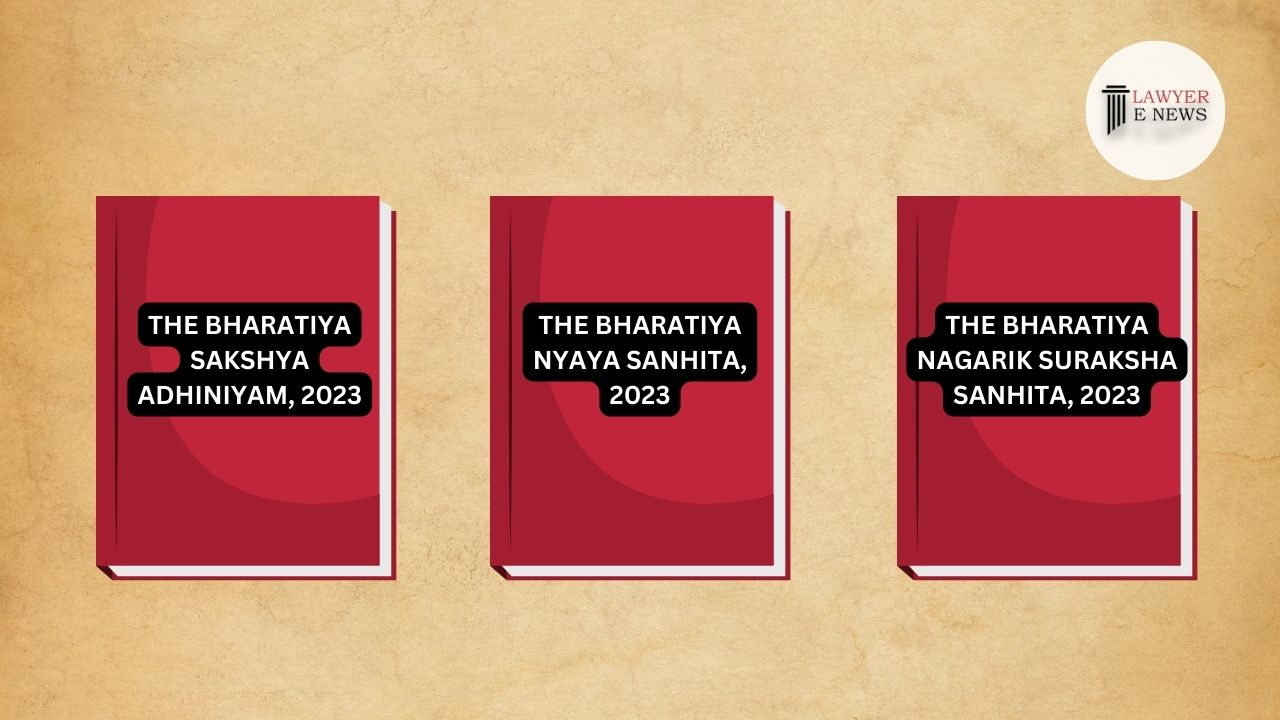


The introduction of "The Bharatiya Sakshya Adhiniyam, 2023", "The Bharatiya Nyaya Sanhita, 2023", and "The Bharatiya Nagrik Suraksha Sanhita, 2023" marks a significant milestone in the Indian legal framework, promising to reshape various aspects of evidence law, judicial processes, and citizen security.
The Bharatiya Sakshya Adhiniyam, 2023
Overview and Significance:
The Bharatiya Sakshya Adhiniyam, 2023, focuses on the modernization and streamlining of evidence laws in India. This legislation comes at a crucial time when digital evidence and new forms of data are increasingly becoming part of legal proceedings. It aims to enhance the reliability, authenticity, and admissibility of various types of evidence, keeping pace with technological advancements.
Key Provisions:
Digital Evidence: The act provides comprehensive guidelines for the collection, storage, and presentation of digital evidence, including data from social media, cloud storage, and electronic communications.
Witness Protection: Enhanced measures for the protection of witnesses, particularly in cases involving organized crime or sensitive matters, are a cornerstone of this legislation.
Evidence Admissibility: Clear criteria for the admissibility of different forms of evidence have been laid out, aiming to reduce ambiguity in judicial processes.
The Bharatiya Nyaya Sanhita, 2023
Overview and Significance:
The Bharatiya Nyaya Sanhita, 2023, is a landmark act reforming judicial procedures and court administration. This act envisions a more efficient, transparent, and accessible judicial system, addressing long-standing issues like case backlog and procedural complexities.
Key Provisions:
Case Management: Introduction of advanced case management systems to streamline court procedures and reduce delays.
Alternative Dispute Resolution (ADR): Promotion of ADR mechanisms like mediation and arbitration for quicker resolution of disputes.
Judicial Transparency: Mandates for greater transparency in the functioning of courts, including the publication of judgments and court proceedings.
The Bharatiya Nagrik Suraksha Sanhita, 2023
Overview and Significance:
This act is centered on citizen security, aiming to provide a robust legal framework to ensure the safety and security of Indian citizens. It addresses contemporary challenges such as cybercrime, terrorism, and internal security threats.
Key Provisions:
National Security: Strong measures against terrorism, espionage, and threats to national integrity.
Cyber Security: Comprehensive laws to combat cybercrimes, protect data privacy, and secure online transactions.
Community Policing: Encourages community policing initiatives to strengthen the bond between law enforcement agencies and the public.
These three acts represent a progressive step towards reforming the Indian legal system, making it more in tune with current challenges and technological advancements. They are expected to bring about significant improvements in legal processes, evidence handling, judicial efficiency, and citizen security. However, the successful implementation of these laws will depend on the collaboration between various stakeholders, including the judiciary, law enforcement agencies, legal professionals, and the public.